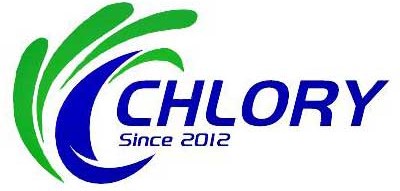With the advancement of science and technology and the improvement of environmental awareness, the petrochemical industry is facing tremendous pressure for transformation and upgrading. Against this background, seawater electrochlorination technology, as an innovative way to utilize seawater, is showing great potential and value in the petrochemical industry. The electrolytic seawater sodium hypochlorite generator produced by Bluewav is a major breakthrough in seawater electrochlorination technology. Seawater electrochlorination technology not only helps to solve the problems of the petrochemical industry in cooling water system anti-fouling and wastewater treatment, but also provides a new way to achieve green production.

Introduction to seawater electrochlorination technology
Seawater electrochlorination is a technology that produces sodium hypochlorite (NaClO) solution on-site by electrolyzing seawater. The process uses the principle of electrolysis to convert chloride ions in seawater into sodium hypochlorite, which is a strong oxidant with a wide range of bactericidal and disinfecting effects. Seawater electrochlorination technology can not only use seawater as raw material directly on site, without the need to transport and store large amounts of chlorine or liquid bleach, improve safety and reduce logistics challenges, but also help reduce environmental impact and achieve sustainable development goals.

Application in petrochemical industry
Cooling water system anti-fouling

In the petrochemical industry, the cooling water system is a key part, but the attachment and growth of marine organisms often leads to a decrease in system efficiency and even failures. The sodium hypochlorite solution produced by seawater electrochlorination technology is toxic and can inhibit or kill the larvae and spores of marine organisms, thereby preventing the attachment and growth of marine organisms. Through the electrolysis of seawater chlorination equipment, petrochemical enterprises can automatically and efficiently maintain the cleanliness of the cooling water system and reduce downtime maintenance and production costs caused by marine biofouling.
Wastewater treatment

The petrochemical industry produces a large amount of wastewater during the production process, which contains various organic and inorganic substances, posing a serious threat to the environment. The sodium hypochlorite solution generated by seawater electrochlorination technology has strong oxidizing properties and can effectively decompose harmful substances in wastewater, reduce chemical oxygen demand (COD) and biological oxygen demand (BOD), thereby meeting the standards for wastewater treatment. In addition, this technology can also reduce the use of traditional chemical agents, reduce treatment costs, and improve the efficiency and effectiveness of wastewater treatment.
Environmental protection and energy saving

Compared with traditional chlorine production methods, seawater electrochlorination technology has less impact on the environment. Using on-site power generation can minimize the carbon footprint associated with transportation and storage, helping the petrochemical industry achieve energy conservation and emission reduction goals. At the same time, the technology can also reduce the consumption of freshwater resources, which is particularly important for areas with water shortages.
Market prospects and challenges

According to the latest market research report, the global seawater electrochlorination market size continues to grow and is expected to reach 3.5 billion yuan in 2030. In the petrochemical industry, with the increasingly stringent environmental regulations and the popularization of green production concepts, the application prospects of seawater electrochlorination technology are broad. However, the technology also faces some challenges, such as high energy consumption, maintenance difficulties, and competition from alternative technologies. In the future, with the continuous advancement of technology and further reduction of costs, seawater electrochlorination technology is expected to be more widely used and promoted in the petrochemical industry.
Conclusion
As an innovative way to utilize seawater, seawater electrochlorination technology shows great potential and value in the petrochemical industry. By solving problems such as anti-fouling of cooling water systems and wastewater treatment, this technology not only helps the petrochemical industry achieve green production goals, but also helps promote the sustainable development of the entire industry. Bluewav has been committed to the development of seawater electrochlorination technology. In the future, with the continuous advancement of technology and the continuous expansion of the market, seawater electrochlorination technology is expected to play a more important role in the petrochemical industry.
